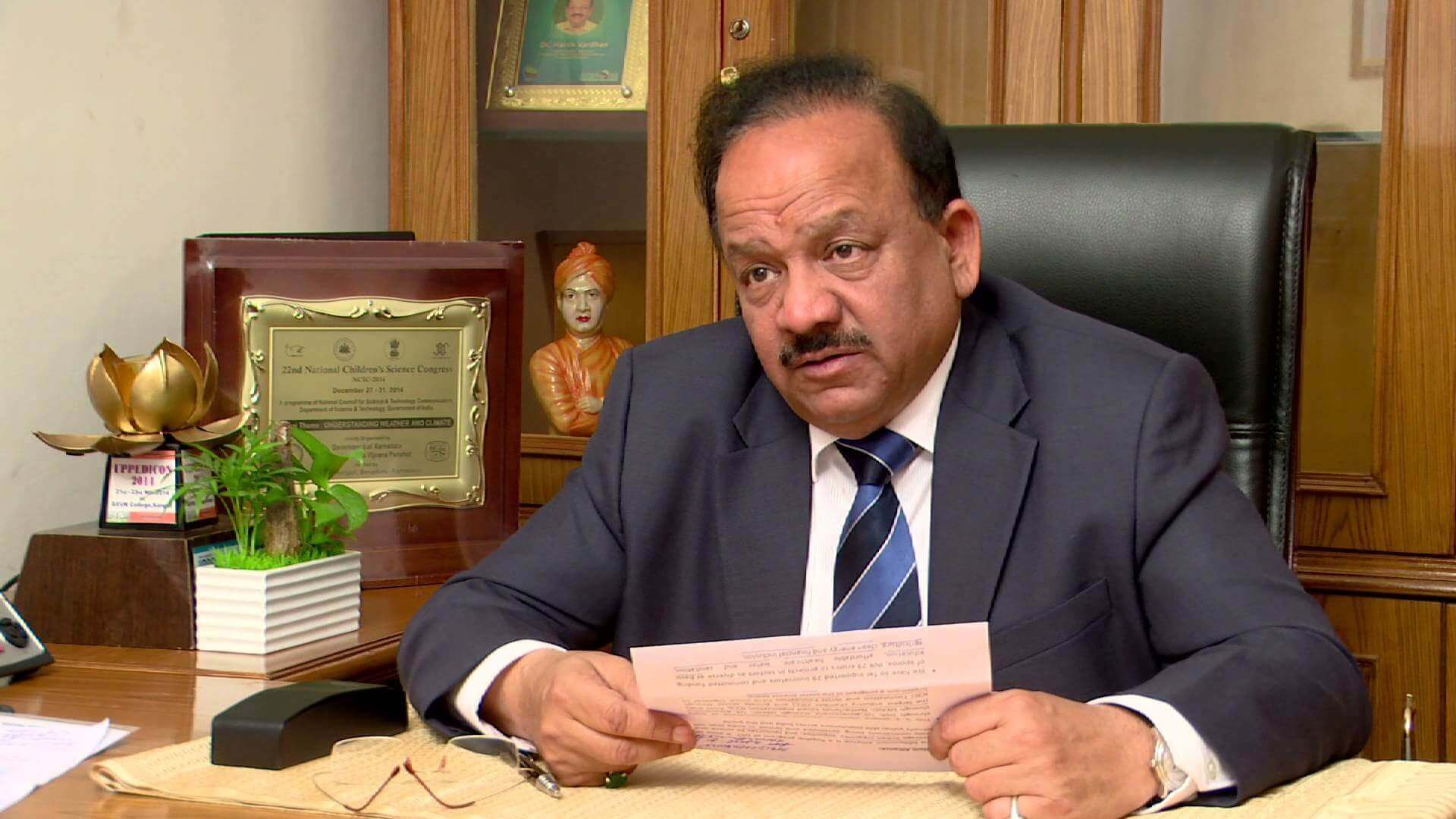India’s Union Health Minister, Doctor Harsh Vardhan, is set to be appointed as the chairman of the 34-member World Health Organization (WHO) Executive Board on May 22. He will succeed Japan’s Dr. Hiroki Nakatani. Consequently, India will be elected as a member state of the executive board for a three-year term, wherein Vardhan will serve as the chairman for the first year. India is one among ten other nations that were elected by the WHA to the Board for a three-year-term, alongside Botswana, Colombia, Ghana, Guinea-Bissau, Madagascar, Oman, Republic of Korea, Russia, and the United Kingdom (UK).
The proposal to appoint India’s nominee was signed by the 194-nation World Health Assembly (WHA) on Tuesday, the 2nd day of the two day meet. During the 73rd session of the WHA, members also considered a resolution that seeks an impartial, comprehensive, and independent evaluation of the institution’s role and response during the ongoing coronavirus pandemic. The resolution, that is led in part by Australia and the European Union (EU), is supported by close to 140 countries, including India, Russia, Indonesia, Japan, the UK, Canada, Brazil, South Korea, Mexico, Turkey, and New Zealand. The resolution–which makes no mention of China, despite growing international scrutiny of China’s role in the ongoing pandemic–was ultimately signed by both China and the United States as well.
The main functions of the WHO Executive Board are to implement the decisions and policies of the WHA, to facilitate its work, and to provide advise where necessary. The chairman of the WHA Executive Board works in tandem with the director-general of the WHO, Tedros Adhanom Ghebreyesus.
In his new post, Dr. Vardhan will head the Board’s bi-annual meetings, which usually take place in January and May. A senior government official clarified that “it is not a full-time assignment”. After he completes his one-year term as chairman, Dr. Vardhan will continue serving as a member of the Assembly for a further two years and will be asked to assist in the shortlisting of the next director-general of the WHO.
India’s Health Minister participated in the two-day WHA session via videoconference. In his address, he conveyed his “deepest condolences” at the devastation wrought by the coronavirus. He also honored the “doctors, the nurses, the paramedics, the scientists, the journalists, the delivery boys, security staff, sanitation staff and the police personnel - the forgotten roles who are today playing ‘superhumans’”.
He elucidated upon India’s response to the outbreak, saying, “We, in India, undertook the COVID-19 challenge with the highest level of political commitment. Our Prime Minister, Narendra Modi, personally monitored the situation and ensured a pre-emptive, pro-active and graded response, leaving no stones unturned to contain the deadly virus from spreading.”
Furthermore, he put forth India’s message of solidarity and expressed the need for cooperation, saying, “India is playing a key role in fostering bilateral and regional partnerships. Under our Prime Minister's able leadership, India has supplied essential medicines to 123 nations.”
Dr. Vardhan’s appointment comes at a time when Trump has criticized the “China-centric” WHO and lambasted China itself for its handling of, and complicity in, the pandemic. Thus, India stands to gain significant diplomatic capital and to advance its goals of becoming a great power by brokering peace.
For instance, last week, Indian External Affairs Minister Subrahmanyam Jaishankar took part in the Russia-organised Shanghai Cooperation Organisation (SCO) videoconference, where Russia and China criticized the US’ ‘confrontationalism’ and its attempts to politicize the crisis and stigmatize individual countries. However, just a few days earlier, Jaishankar also took part in a videoconference with his counterparts from the US, Australia, Japan, Israel, Brazil, and South Korea. During the call, US Secretary of State Mike Pompeo raised the need for “accountability”, in a thinly-veiled reference to China.
During this period, India has sought to de-escalate any simmering tensions with China. After a skirmish between Indian and Chinese troops in Sikkim and Ladakh, Indian Army Chief General Manoj Mukund Naravane sought to downplay the event, saying the situation had been mutually and amicably resolved. He added that one shouldn’t “read too much into” such scuffles as they are “very common”, and conceded that there was “aggressive behavior” by both sides.
While Dr. Vardhan’s appointment must be separated from India’s strategic border concerns, India stands in a fairly unique position of being able to influence and shape what Prime Minister Narendra Modi has referred to as a “new era of globalization” in the post-coronavirus world. By maintaining cordial relations with both sides, India can play a leading role in reforming the WHO and mending fractured international relations.
While the ambit of the role doesn’t necessarily allow Dr. Vardhan to do this, it can allow India to influence the discourse surrounding global health.
India’s Union Health Minister Appointed as Chairman of WHO Executive Board
Doctor Harsh Vardhan will succeed Japan’s Dr. Hiroki Nakatani.
May 20, 2020

IMAGE SOURCE: ANI
